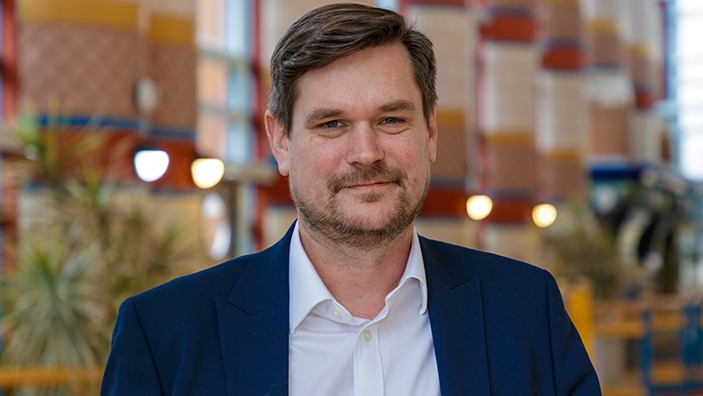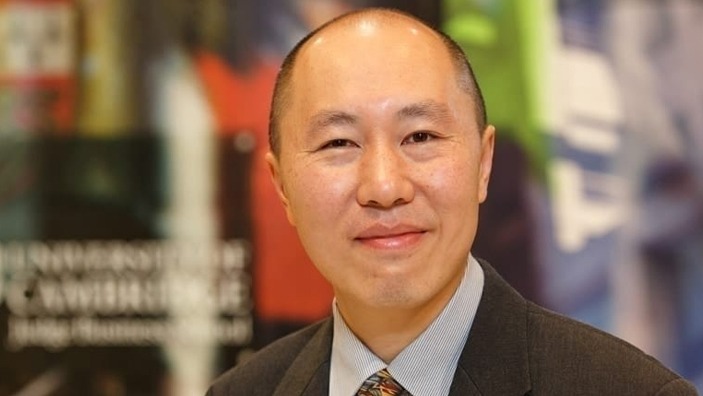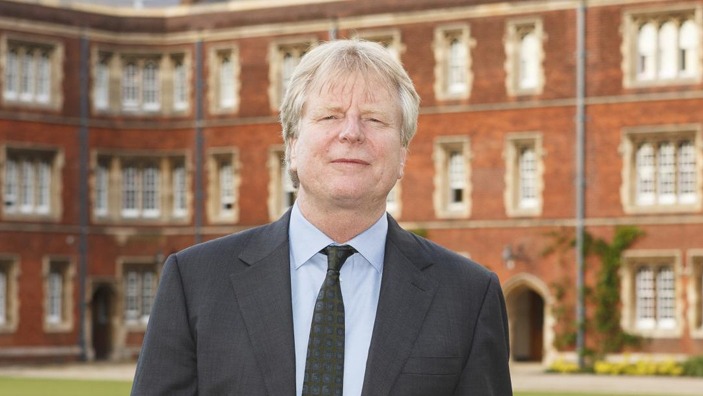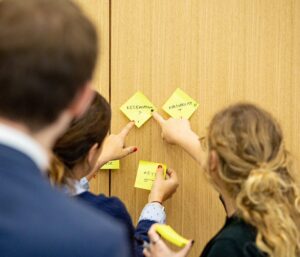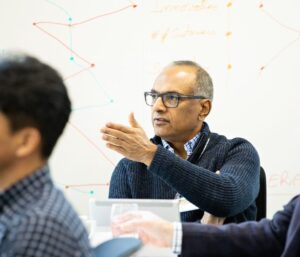Strategic Decision-Making for Leaders
Acquire the tools and techniques to improve the quality of strategic decisions made by senior managers at every level of leadership within your organisation.
Upcoming programmes
Format:
Dates:
Duration:
Fees:
Face-to-face
22-24 Sep 2025
3 days
£4,550 + VAT
Face-to-face
1-3 Dec 2025
3 days
£4,550 + VAT
Face-to-face
26-28 Jan 2026
3 days
£4,550 + VAT
Face-to-face
13-15 Apr 2026
3 days
£4,550 + VAT
Face-to-face
1-3 Jul 2026
3 days
£4,550 + VAT
Upcoming programmes
Format:
Face-to-face
Dates:
22-24 Sep 2025
Duration:
3 days
Fees:
£4,550 + VAT
Format:
Face-to-face
Dates:
1-3 Dec 2025
Duration:
3 days
Fees:
£4,550 + VAT
Format:
Face-to-face
Dates:
26-28 Jan 2026
Duration:
3 days
Fees:
£4,550 + VAT
Format:
Face-to-face
Dates:
13-15 Apr 2026
Duration:
3 days
Fees:
£4,550 + VAT
Format:
Face-to-face
Dates:
1-3 Jul 2026
Duration:
3 days
Fees:
£4,550 + VAT
Overview
Strategic decision making is dominated by uncertainty. In a competitive market, where you must discern the behaviour of both competitor and customer, strategic decisions can be misaligned and break down. Individuals can be overwhelmed by uncertainty and perceived risk, and groups and organisations by decision-makers’ personal bias [derived from social interactions and cultural assumptions].
But effective decision-making can be learned. Blending theory and practice, Strategic Decision-Making for Leaders offers new approaches to fit the complexities of these situations. Learn to think strategically in highly interactive markets. Gain research-based insights into the psychology behind people’s behaviour. Improve the quality of your strategic decisions, manage unknowns and influence the social and behavioural dynamics within organisations.
Benefits and career impact
Manage ambiguity, understand group dynamics and assess market environments.
- Improve the quality of your decision-making.
- Discover how to manage “unknown unknowns” and “Black Swans” – unpredictable events with potentially severe consequences.
- Apply behavioural insights to influence social dynamics in your organisation.
- Learn to make strategic decisions in a competitive market environment.
- Understand and apply practical tools and techniques designed to improve the quality of your decision making at each level.
- Gain a digital certificate of completion from Cambridge Judge Business School Executive Education.
- Equip your senior managers and leadership team to make better strategic decisions.
- Position your organisation to utilise tools like Judo and Nudge strategies more effectively.
- Ensure your organisation can compete in a competitive marketplace.
Alberto Feduzi: “My name is Alberto Feduzi, and I’m a Management Practice Associate Professor in the Organisational Behaviour group here at Cambridge Judge Business School (CJBS). I’m interested in how individuals make decisions in situations of extreme uncertainty, where the information is highly ambiguous and incomplete. Unknown unknowns and Black Swans are rampant, and time is of the essence.”
Christoph Loch: “Hello. My name is Christoph Loch. I’m a Professor of Operations and Technology Management here at CJBS. I have worked for the last 35 years on issues of innovation. And for 10 years, I was the Dean of the School.”
Vincent Mak: “I’m Vincent Mak. I’m a Professor of Marketing and Decision Sciences at Cambridge Judge Business School, University of Cambridge, where I’m also currently the Vice Dean for Programmes and Research.”
Alberto Feduzi: “Organisational leaders are called to make decisions in different contexts, and so they face different types of challenges. And these challenges happen at 3 different levels; at an individual’s level where leaders are called to adapt their decision styles depending on the situation they are facing.”
Christoph Loch: “The second module is about the social level. Our decisions are influenced by the people around us. If I secretly don’t respect you, even though I may not even be conscious of that myself, I may make a decision that pertains to you in a different way than if I respect you very much. And our decisions are also influenced by the culture surrounding us. The second module will give us tools to understand this and improve.”
Vincent Mak: “Finally, we will be exploring making decisions at the market level where competitors and other stakeholders interact and a decision that you make could have an implication on many people. And they will respond in a way that would, in turn, affect you. We will try to understand how to make the best decisions in those situations, starting from making decisions in a highly intense competitive scenario, as well as making decisions where you work with a large group of people in a multinational team to co-ordinate, to work together.”
Alberto Feduzi: “In this programme, we will cover all the different levels and will build on each other to provide you with the general framework for making decisions in situations of extreme uncertainty.rnrn“The programme is highly interactive. In order to provide the raw material for discussion in class, we will use a number of tools, including simulation, self-assessment, case studies and exercises.
“The discussion will allow us to bring to class our own experiences. We create a learning environment in class that allows for people to feel free to share their own experience with the others so that we can all learn from each other.”
Christoph Loch: “This programme – you will not really find anything like this anywhere else, this combination of decision making topics. When you normally look at decision making, people will take a more normative, or simply descriptive approach of this is how people make decisions. But to dissect where the levels of vulnerability are, this is unique, or close to unique. I think that’s a reason to consider this.rnrn“I think the second reason is frankly the team of faculty. You have 3 people who are very different, who have different expertise, but shifted from each other with some overlap. And that allows us to combine and create something, which actually integrates these very different levels of views, the competitive macro level, the social cultural level, as well as the individual level. And as a result, you get something powerful that you can take home, and that you can use as a lens to look at decisions being made in your organisations from angles that you were never aware of.”
Alberto Feduzi: “I hope we will see you soon in Cambridge.”
Vincent Mak: “Looking forward to seeing you in Cambridge.”
The Strategic Decision-Making for Leaders programme addresses the decision making challenges that organisational leaders face at 3 levels: the individual level; the group and organisational level; and the market level. Your learning journey will involve examining decision making issues at all three levels and learning how to manage them with different frameworks and tools. We will draw upon lessons learned from multiple contexts, including the COVID-19 pandemic and the ever-rising concerns for environmental, social, and governance issues. Through simulations, exercises, cases, videos, and lectures, the programme will draw out learnings that you can apply when making decisions in your organisation, your team, and by yourself.
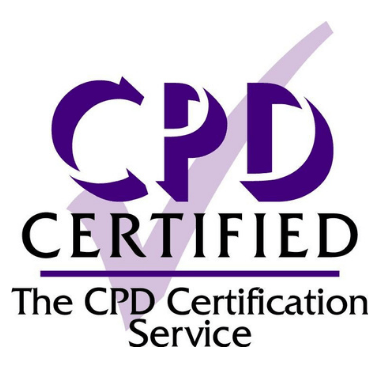
This programme is certified by the CPD Certification Service. It may be applicable to individuals who are members of, or are associated with, UK-based professional bodies.
Programme content
Nudge strategies. Black swans. The Baconian method. Explore the tools and techniques involved in strategic decision making at an individual, organisational and market level.
Module 1: Individual level of decision making
- Understand the standard approaches to decision-making and learn to cope with uncertainty.
- Use practical reasoning strategies and de-biasing techniques to improve strategic decision-making.
- Adopt approaches to deal with “unknown unknowns” and “Black Swans”.
Module 2: Group and organisational level of decision making
- Learn about the social character of human intelligence.
- Understand the essence of culture as social learning.
- Explore how to guide culture.
- Identify a small number of key social dynamics and influence them in ways that positively affect groups and organisations when making decisions.
Module 3: The market level of decision making
- Understand the importance of strategic intelligence in a competitive marketplace.
- Succeed in a competitive market environment using tools such as judo strategy.
- Apply behavioural insights to influence people using tools such as nudge strategies.
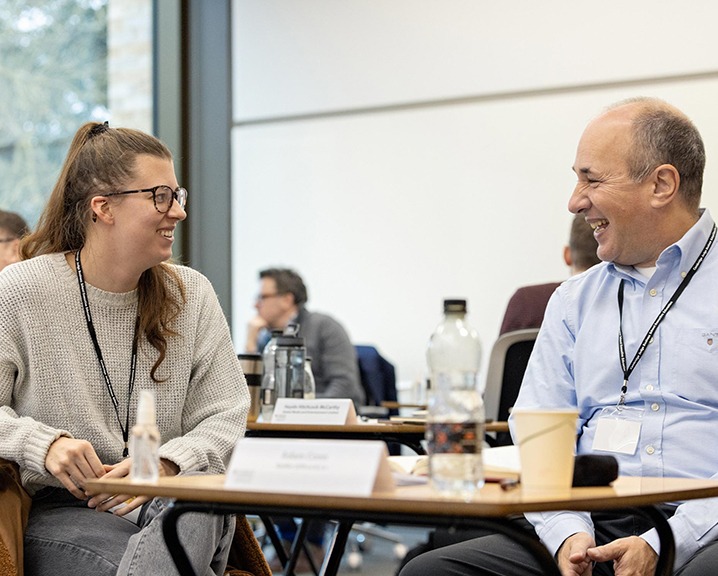
How you learn: Face-to-face
Enjoy 3 inspirational days in the historic and beautiful city of Cambridge, a world-renowned centre of cutting-edge knowledge creation. Engage with faculty and peers in person and take time away from home and office to focus on your learning and networking objectives. Join ‘Cambridge Union’-style debates, hear from guest speakers and faculty, interact with carefully selected peers and experience group exercises, role-play and discussion both in and outside class.
Who attends
Strategic Decision-Making for Leaders is for:
- senior to mid-level leaders of major corporations and public policy making bodies
- senior leaders of small and medium-sized enterprises
- startup founders
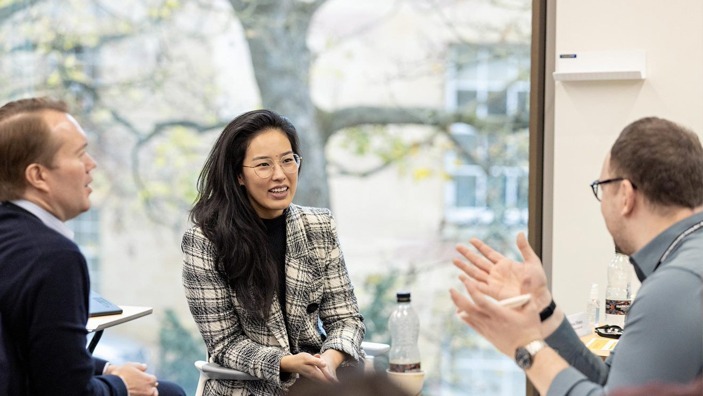
Faculty and speakers
Learn from our world-class faculty who bring fresh insights from their leading-edge research into all of our Executive Education programmes.
The Academic Programme Director (APD) for the Strategic Decision-Making for Leaders programme is Professor Vincent Mak.
PhD (Hong Kong University of Science and Technology)
PhD (University of Cambridge)
Why Cambridge Judge Business School?
Related programmes
Strategic Decision-Making for Leaders belongs to our Managing Organisations-topic executive education programmes. Here is a selection of related programmes:
Business Analytics and AI: Decision-Making Using Data
Drive your organisation’s future by harnessing the power of data, gaining the tools to build expertise in analysis, trend-spotting and bias-avoidance.
Strategic Thinking for the CXO
Formulate, evaluate and execute effective strategies for creating and maintaining competitive advantage, even in the face of uncertainty.
Integrating Risk into Strategic Decision-Making
Expand your mindset beyond traditional areas of risk, learning to respond dynamically to economic volatility, change and digital disruption, and improving your ability to thrive in the face of complex threats and opportunities.
Speak to a programme advisor
If you have any questions or would like to discuss how this programme could benefit you or your organisation, please get in touch with the programme advisor.
